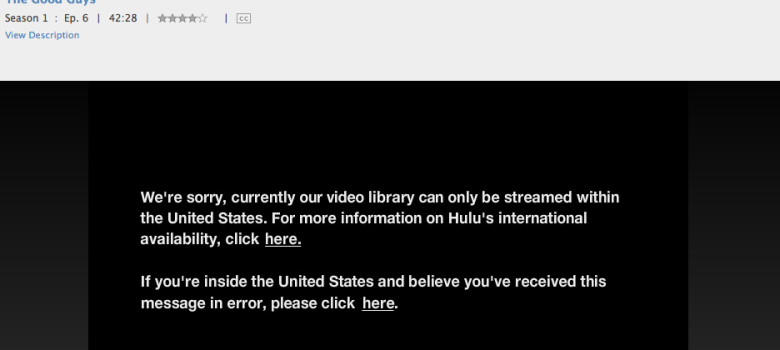The prospect of new digital taxes and regulation to fund the creation of Canadian content continues to attract attention with cultural groups leading the charge. For example, the Canadian Independent Music Association recently called for the regulation of digital services and ISPs including mandated contributions to support the development of Canadian content, while ADISQ has previously lobbied for a similar policy approach.
With mounting coverage of the issue, Canadian Heritage Minister Melanie Joly appeared last weekend on CTV’s Question Period, spending most of the nine minutes dodging questions from host Evan Solomon. Joly started by clearly stating that “there will be no new Netflix tax”, but spent the rest of the interview making the case for one. The discussion featured speaking points that seemed to contradict the no Netflix tax approach, emphasizing that everything is on the policy table and that the government is looking at all scenarios. Solomon noted the inconsistency of the comments and Joly struggled to respond.
Most troubling was the exchange on new regulations, taxes or fees for Internet companies and services. Solomon specifically asked whether the only digital tax that Joly was willing rule out was a Netflix tax. Joly’s response:
I’ve said that we’re willing to have a conversation with digital platforms. Netflix is one of them. There are Amazons, Hulus, Apple. There are big companies that are part of our ecosystem, that are used and liked by Canadians. This is why we want to make sure that we know that they are using a large part of our spectrum that we can have a conversation with them to see how they can participate.
While it is somewhat difficult to fully decipher Joly’s comments, the references point in the direction of a tax or regulation on Internet services and service providers.
First, the comment suggests that Joly subscribes to the view that there is a parallel between conventional broadcast and the Internet that invites a similar regulatory approach. Part of the rationale for broadcast regulation is that broadcast spectrum is scarce, therefore requiring licensing and regulation. By indicating that Internet services use a “large part of our spectrum”, Joly is making the case for treating Internet services as equivalent to broadcast. I believe that Joly is wrong: the Internet is not the same as broadcast and access to these services frequently involves private networks, not publicly-licensed spectrum. However, by arguing that they are using Canadian spectrum, Joly is laying the groundwork for a regulatory model for Internet services.
Second, Joly speaks of the need to have a conversation with Internet services “to see how they can participate.” Services such as Hulu and Amazon’s streaming service are not even available to Canadians, but even with those services that are (such as Netflix), the notion of exploring how they can participate again assumes a regulatory approach in which offering a service to Canadians from anywhere in the world leads to regulated participation in the Canadian system. Companies such as Netflix and Google rejected this approach during the 2014 CRTC hearing, effectively arguing that they are not subject to Canadian broadcast regulation. Joly can move to change that law, but doing so will invite a new era of Internet regulation.
Joly tried to emphasize that these issues are up for consultation, but the references to digital platforms, using Canadian spectrum, and participation in the Canadian system all point to future demands for regulations, payments, levies or taxes. The consultation is open until November 25th, with preliminary findings and recommendations expected within weeks after the consultation closes.








“By indicating that Internet services use a ‘large part of our spectrum’, Joly is making the case for treating Internet services as equivalent to broadcast.”
This is another strawman argument that needs to be killed off before it actually hurts something important.
The deliberate use of the word “spectrum” is just an attempt to lump the Internet in with something it has no real relation to – broadcast media – in order to “justify” future “fees” and/or “taxes” to an ignorant public.
The Internet is a product of a global collective that encompasses far more than just WIRELESS communication (which is what “spectrum” really applies to). The result of that collective probably GENERATES more “spectrum” than it “consumes”.
Once again, legacy business models, such as broadcast TV, are failing from new kinds of competition, and our Government is struggling to find money in order to prop them up again.
Funny how they always seem to look to the newer forms of services to subsidize the older ones. If anything, innovation should be propped, and the dinosaurs should be allowed to die off naturally.
Indeed. Instead of attempting to force via legislation, the government should be offering subsidies to content creators and hosting its own damn platform, and then licensing this content to global distributors. The national film board has a site/portal for example.
You trust the Canadian government to build content delivery networks? A usable platform? Technology companies have a hard time doing this — do you really want the same Federal government responsible for Phoenix payroll system to be designing your entertainment? No way.
No regulation of internet services. Ever.
I oppose any kind of censorship imposed by our government or anyone else.
There are people with in the arts community that think protecting Canadian content should over ride any freedom meaning ban certain sites much like China does also some go as far to say all American content should be banned.
Since I dropped cable many many years ago I have often wondered how long it would take them to censor my choices such as HULU and yes, the US version of NETFILX (still working) , and get that cash back into the hands of these welfare cases they call Canadian content providers.
I must say you have high quality posts here. Your blog
can go viral. You need initial traffic only. How to get it?
Search for; Etorofer’s strategies